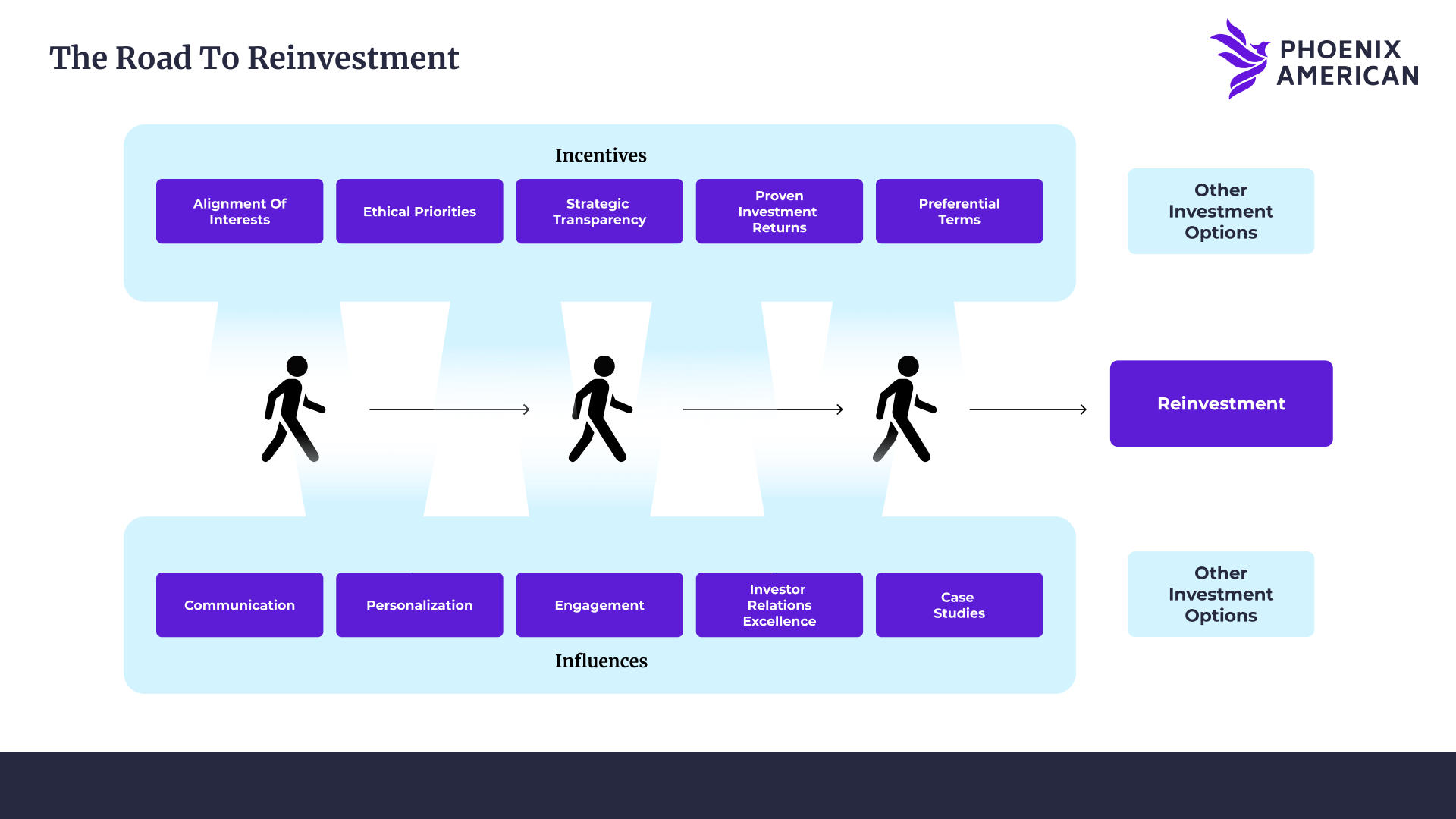For private equity fund managers, fostering reinvestment from existing investors is a nuanced task, deeply rooted in the principles of investor relations. A variety of strategic measures are central to this endeavor. The factors that most effectively encourage existing investors to reinvest with an investment product sponsor are in two broad categories: Incentives and Influences.
Incentives
1. Alignment of Interests
Fund management should emphasize the alignment of the fund’s interests with those of its investors. Communicating strategies like co-investment by fund managers or performance-based compensation structures is essential for highlighting this alignment.
2. Ethical Priorities
Fund management should also underscore a commitment to ethical and responsible investing. Either demonstrating adherence to environmental, social and governance (ESG) principles or highlighting other aspects of an enlightened approach to investments is increasingly important and can be a decisive factor in attracting reinvestments.
3. Strategic Transparency
An important element of investor relations is articulating the fund’s future strategy and vision. Conveying upcoming opportunities and long-term objectives can spark excitement and interest among investors regarding future prospects.
4. Proven Investment Returns
Reinvestments are significantly bolstered, of course, by consistently delivering strong fund performance. A proven track record of consistent strong returns is instrumental in investor relations, as it builds investor confidence in the fund’s ability to effectively manage and augment investments over the long term.
5. Preferential Terms
Reinvestments are also encouraged by the offering of preferential terms to loyal investors. Communicating benefits such as reduced fees or early access to new investment opportunities through investor relations channels can significantly motivate reinvestments.
Influences
6. Communication
The cornerstone of investor relations is maintaining transparent and open communication with investors. Regular and clear updates about the fund’s performance, strategies and market insights are paramount for a reinvestment strategy. This aspect of investor relations, especially the openness in addressing challenges and resolutions, is key to cultivating trust and enhancing reinvestments.
7. Personalization
Personalizing the approach in investor relations is vital. Catering to the unique interests and preferences of each investor can lead to more effective engagement and, consequently, reinvestments. By personalizing checks, statements, marketing, web portals, services and other aspects of investor relations, fund managers can effectively encourage current investors to consider reinvesting in future fund.
8. Engagement
Engagement with investors is another critical dimension of investor relations. Through meetings, webinars, conference calls and investor events, the investor experience is nurtured, engendering robust, ongoing relationships. Adapting to the changing needs and investment goals of investors through effective investor relations engagement is pivotal to presenting more customized investment opportunities.
9. Investor Relations Excellence
A focus on responsiveness and thoroughness in investor service support plays a significant role in investor relations. Enhancing the overall investor experience through high-quality services and knowledgeable support is vital for fostering a conducive environment for reinvestments.
10. Case Studies
Success stories are a strategic tool in investor relations. Sharing case studies of past successes can demonstrate a fund sponsor’s expertise and effectiveness, which is very effective in encouraging reinvestments.
By concentrating on these aspects of investor relations, private equity fund managers can effectively encourage current investors to consider reinvesting in the fund.




